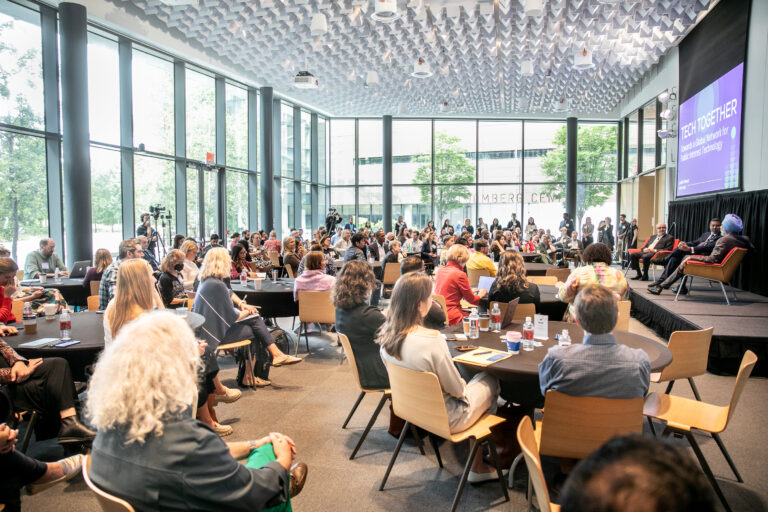by Katy Knight
I have struggled for days to find the words. Not just to share with you all, our SFE community, but even in my personal life, to speak to friends and family about what is happening in our country. In a way, it is because I have run out of words to express the grief and frustration I feel personally, as a Black woman. It is a pain and exasperation that is rooted not just in recent tragedies but also in the long history of systemic, institutionalized racism and inequity in the United States. We speak the names George Floyd, Breonna Taylor, and Ahmaud Arbery, recognizing that they are entries on a list that is far too long. There is so much work to be done in order for us to arrive at a place where everyone enjoys the same rights, freedoms, and opportunities in this country.
If the only time we hear marginalized voices is when they are crying out, we will fail over and over again to make any meaningful change. In my life, I’ve been fortunate: I’ve had more opportunities than many. I’ve navigated over, around, and through obstacles when I could. I’ve made some good choices. And the sum of all that finds me here: in a position of privilege, power, and influence at the helm of a foundation. So even through the hurt and the obstacles, I am searching for the opportunity to use that privilege I do hold, to call for justice and to be a part of the solution.
At SFE we are constantly asking questions, because we believe that asking the right questions is the critical first step to achieving our mission: To understand and shape the impact of technology on society. It’s a broad remit that takes us in many different directions across our three interest areas. COVID-19 and its impacts have forced us to look at our work from another angle: What happens when tech is not what’s changing society? And today, as I reflect on current events, I am reminded of yet another question about society: What is the change we need to see that is not driven by technology? And how can we help make that change a reality through our work?
A few years ago, our chairman urged us to “look in the corners” to find and fund the sort of organizations, projects, and leaders that other foundations might overlook. That charge has afforded us the opportunity to engage with some of the most thoughtful and innovative people and to support and lift the voices of leaders who may not have been heard in traditional spaces. We need to do more of this — not just at SFE, but in philanthropy and the social sector more broadly. If the only time we hear marginalized voices is when they are crying out, we will fail over and over again to make any meaningful change.
Since the beginning of this year, the SFE team has been in the process of refining our strategy and goals. This moment and all that it represents will not fall by the wayside as we make those plans. We are committing immediate funding to organizations focused on criminal justice reform and civil rights, which I believe is crucial to keep us moving forward. But making some grants today isn’t enough and isn’t where it ends. I’ve always told the team here that “context is key” when we are thinking about our work, and the “context” of the impact of institutionalized and systemic racism cannot be ignored.
We are on a journey that is not without significant obstacles, but I also see it as an opportunity to grow together, support each other, and put our collective energy towards building the world we deserve.

Katy Knight is the Executive Director of Siegel Family Endowment





